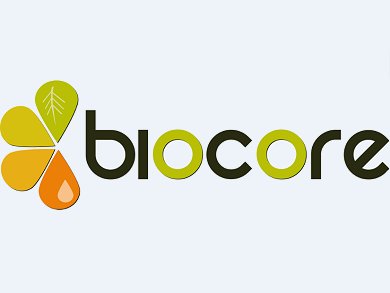BIOCORE is a 7th Framework Program (FP7) European project which began in March 2010. This four year program aims to demonstrate the industrial feasibility of a biorefinery concept. The consortium is composed of 24 partners coming from European companies, non-government organizations (NGOs), universities and R&D institutes. The project includes a world-class Indian R&D institute (TERI – The Energy and Resources Institute, New Delhi), which supplies vital data that will help to understand how biorefining can be developed in India.
Core Objective
Today, concerns linked to climate change and Europe’s excessive dependency on fossil resources are providing the necessary impetus for Society’s transition towards a new economy that will use biomass as its primary source of carbon and energy. In this respect, biomass (plant and animal-derived resources alike) is completely unique, because it is the only naturally renewable energy source that can also supply carbon for the production of the chemicals and products that are vital for our daily life.
The EU project BIOCORE, managed by Institut National de la Recherche Agronomique (INRA, French National Institute for Agricultural Research), has been created to conceive and analyze the industrial feasibility of a biorefinery concept that will allow the conversion of cereal by-products (straws, etc.), forestry products, and short rotation woody crops into second generation biofuels, chemical intermediates, polymers, and materials.
The first challenge for BIOCORE is to demonstrate the feasibility of an advanced biorefinery operation that uses diverse biomass feedstocks. To achieve this, activities in BIOCORE are focusing on important areas, such as feedstock supply, using a case study approach, which accounts for variations in biomass type and annual availability, and transport logistics. Case studies are currently underway in several European regions and in India.
From a technical point of view, BIOCORE is developing and optimizing a series of technologies to perform the different stages of lignocellulosic biomass refining and to extract the maximum value and products from an available resource. Regarding the initial extraction of the biomass components – cellulose, hemicellulose, and lignin – BIOCORE is using patented technology developed by a French company (CIMV S.A.), which supplies the three fractions as refined platform intermediates. To further transform these into useful products, BIOCORE partners are focusing on a variety of chemical, thermochemical, and biotechnological processes that will lead to the production of a wide range of products including second generation ethanol and other chemicals that can be used to make polymers (bio-PVC, bio-polyolefins, polyurethane, polyesters, etc.), detergents, food ingredients, and wood panels.
Consideration of Multiple Factors
Beyond the development of individual processes and technologies, BIOCORE is also in the business of demonstrating feasibility of value chains. Focusing on a certain number of mature technologies that form part of the BIOCORE portfolio, pilot scale testing is being used to further establish industrial feasibility in conditions that are close to the market. Additionally, process engineering is being used to model the whole BIOCORE biorefinery process and to scope for process optimization, notably through unit operation integration, the reduction of energy consumption, and the reduction and/or recycling of waste streams.
Finally, beyond the performance of unit operations and manufacturing efficiency, tomorrow’s biorefineries will have to conform to all of the criteria of sustainability, which take into account environmental, economic, and sociopolitical impacts. Therefore, BIOCORE researchers are analyzing the whole of the biorefinery process, from the production of the feedstock through to the ultimate use of the biorefinery products, using a variety of assessment methods in order to ensure that a comprehensive appraisal of the benefits of the BIOCORE concept will be available at the end of the project.
- More information on the project results on the BIOCORE website: http://www.biocore-europe.org/
The BIOCORE project benefits from a budget of 20.3 million €, of which 13.9 million € represents aid from the European Union within the framework seven (FP7) research program under the grant agreement n°FP7-241566.
- BIOCORE – Speaking With Consortium Partners,
ChemViews magazine 2012.
DOI: 10.1002/chemv.201200099
Michael O’Donohue and Jean-Luc Dubois, France, talk about what BIOCORE is doing to revolutionize the industrial supply chain
Also of interest
- Interview: Organizing a European Multilevel Biorefinery Project,
ChemViews magazine 2012.
DOI: 10.1002/chemv.201200068 - CatchBio – Speaking with Consortium Partners,
ChemViews magazine 2012.
DOI: 10.1002/chemv.201200025




